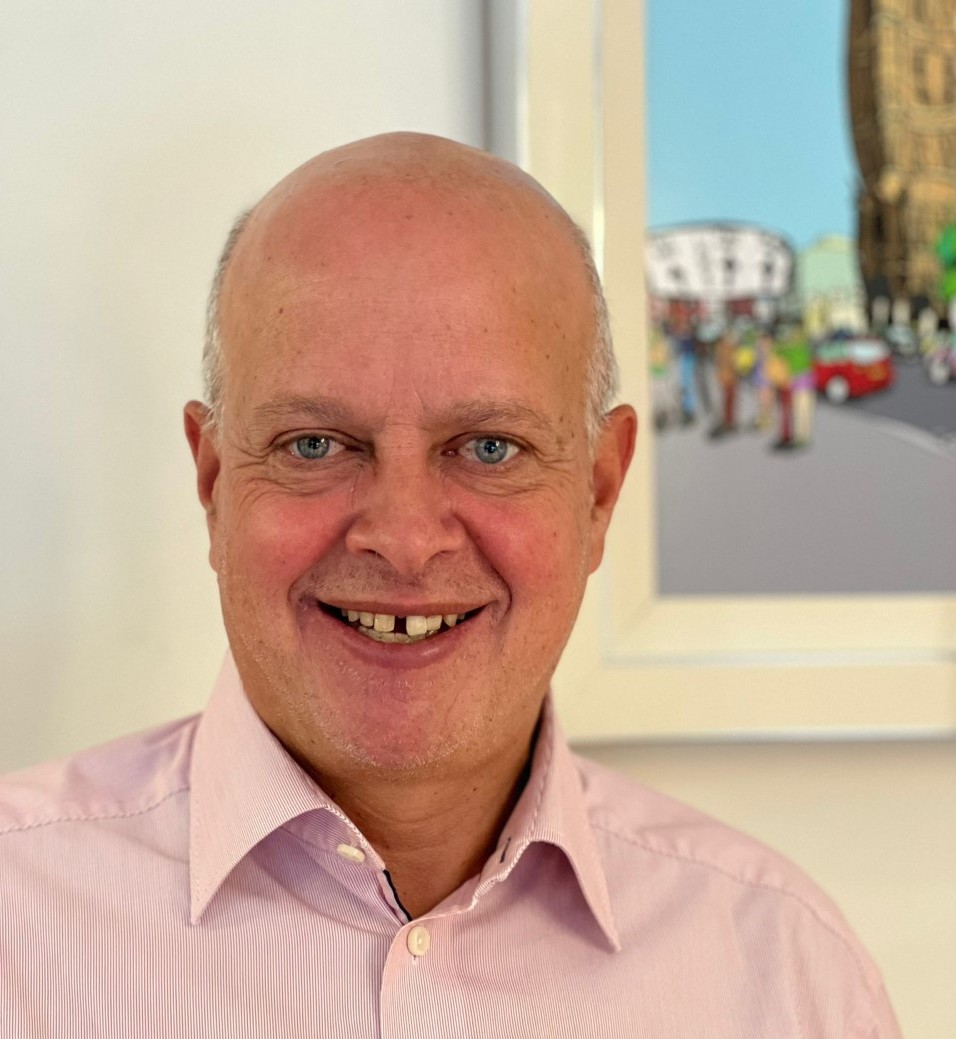We chatted with Behind Every Kick’s newest trustee Tim Shaw. Tim shared his career highlights, including working as Watford Football Club’s CEO during Elton John and Graham Taylor’s time at Vicarage Road. He discussed the skills he looks for when recruiting staff to his business. And he explained why he is so passionate about levelling the playing field for young people.
Where does your passion for sport comes from?
Tim Shaw (TS): Well, if you believe it gets passed down in the genes, I got it from my dad. He was a big rugby man and played for Saracens. I never saw him turn out for them as he’d stopped playing by then, but he’d take me to watch their matches. We’d also watch Middlesex cricket together. Where we differed slightly was that football was my real love. I’ve been a lifelong Watford fan. And I’ve played for lots of 5-a-side and Sunday League teams. It’s always been clear to me that sport is a brilliant way to build life skills. The more young people can involve themselves in sport, the more it will help them in other aspects of their lives.
What skills from sport have you taken into your career?
TS: It might be a cliche, but understanding your role in a team and how your performance affects others is a lesson sport teaches better than anything. I think rugby, in particular, is fantastic for fostering respect for your teammates, the opposition and referees. I also captained amateur football teams – I’m keen to stress here I wasn’t the best player. But as a skipper, I learned about leadership, setting a positive example and taking responsibility when things don’t go well. These skills have been invaluable throughout my career and life.
How did you come to be CEO of Watford Football Club?
TS: Ha ha ha. It wasn’t something I set out to do, that’s for sure. I’d joined the Watford board just around the time the club was promoted to the Premier League for the first time in 1999. I’d recently sold my share in an accountancy practice, so I suppose I was looking for a new challenge. The club didn’t have a chief executive at the time. The vice chairman was looking for someone to help with the day-to-day running of the club. I remember sitting around the board room table when he said this and could feel the wheels turning in my head. As a lifelong Watford fan, it was too good an opportunity to let pass me by. I thought: ‘this is a chance I have to grab’. It was a challenge as I’m not someone who necessarily seeks out the spotlight – and a high-profile job like that comes with some attention from the local and national press. But I thought I had the skills to help the club, so I went for it. I think that’s a big lesson for young people. The more you put yourself forward for things, the more breaks will come your way. If you sit in your office all day and avoid talking to people, opportunities probably won’t find you. Whereas if you’re positive and seek people out, things tend to happen for you. Even if you make a bit of a wally of yourself once or twice, it doesn’t really matter. The main thing is to be proactive and talk to people.
What does a CEO at a football club actually do?
TS: Good question. I suppose to put it into one sentence: you are responsible for every aspect of the club’s off-field activity. Be it marketing, finance, human resources, catering, media relations or retail. Increasingly, these days, CEOs are involved in the recruitment of coaches and players too. Amazingly, when I first started at Watford, it was seen as a part-time role, but pretty quickly, I was working full-time. To give you an idea of how the league has grown in the last 20 years, back in 1999/00, the basic award for playing in the Premier League was £ 3 million. Now it’s worth around £100 million to a club.
How did you cope with the pressure that came with the job?
TS: It was definitely a learning curve for me. I’d never been under that sort of scrutiny before. Fans really, really care about their football clubs and aren’t shy about letting you know if you’ve done something they’re not happy with! I evolved two coping strategies. The first was to realise I couldn’t carry everything on my two shoulders and that we were a team. I learned to use the expertise of the people in the club and trusted in their judgement. The second was to have a clear perspective. We are all extremely passionate about football, but when you strip it back, you aren’t dealing with life and death like doctors or nurses. There were some really stressful times when we experienced sharp financial challenges as a board. But I found by pulling together – and sticking to our plan, even when we made mistakes – we managed to overcome them. And that’s what I’m most proud of from my time at Watford. Several clubs have gone into administration and been unable to pay suppliers, but we never did that. We also helped develop the staff working at the club and left a lasting legacy that way.
What characteristics do you look for when recruiting staff?
TS: First and foremost, I’m not always looking for people with four A level A grades and a first-class degree. I want people who are positive and demonstrate they really want the job. I think those traits, combined with an ability to fit into the team’s culture and the capacity to overcome adversity – which we all encounter at some point in our careers – are critical. Also, is the person kind and do they have integrity? Everything else you can teach. An enthusiastic young person is worth their weight in gold to a business. When I see passion in someone, I want to do everything I can to help them find the path that takes them to where they want to go. Bright, enthusiastic young people are what it’s all about. They’re the future.
Could you tell us about your work as a managing director of an analytics company?
TS: We work with charities and businesses to help them grow using data and analytics. I know a central tenet of what Behind Every Kick encourages in young people is the idea of having an open mindset. That’s something I absolutely believe in. Nobody has a monopoly on good ideas. People with different perspectives, either professionally or personally, can bring so much to an organisation. When I first meet a charity or business to try and help them, that’s what I try to give them. I’m a fresh pair of eyes with different experiences of what has – or maybe hasn’t worked for other businesses. If in business you just have the same people circulating the same ideas, that’s when you get stuck.
Why did you decide to get involved in Behind Every Kick?
TS: I think that leads on from what I was just saying. Every young person has a skill or talent that can be harnessed to bring them both material success and make them feel a valued part of society. The problem is that a certain percentage of the population, who are very fortunate, are far more likely to have access to opportunities than others. I hate that some young people’s potential is going to waste. I know that with a bit of confidence and mentoring – and the other skills and opportunities Behind Every Kick can help them with – they’d flourish.
Finally, we couldn’t let you go without asking what it was like to work at Watford when Elton John was chairman?
TS: Ha ha ha. When I was there, he wasn’t chairing the board meetings anymore as he had done in the 1980s. But what I can say – from my limited experiences of meeting him – is that what you see with Elton is absolutely representative of who he is. I’m not giving any secrets away when I tell you he is incredibly passionate about Watford Football Club!


